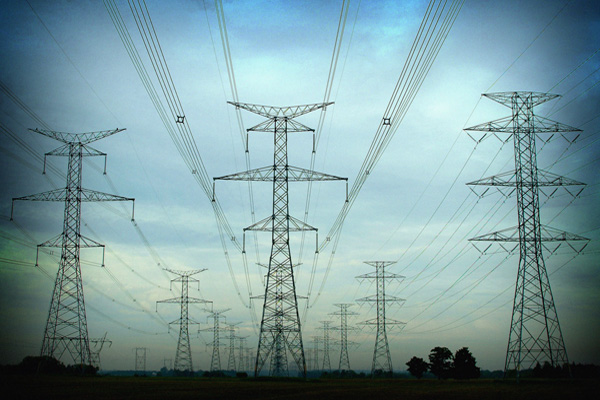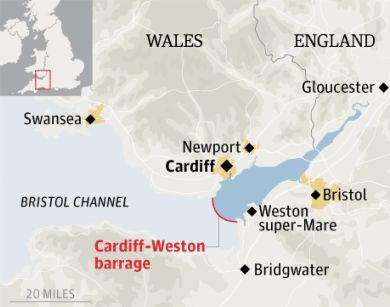 |
| Minister Greg Barker signing off £224 million of public money this week to finance the Green Deal. |
Energy Secretary Ed Davey was keen recently to assure the public that the Green Deal will have a significant uptake and make a difference to the lamentable energy efficiency of the UK's housing stock.
There were plenty of people willing to express scepticism, especially given the off-putting cost of obtaining an initial assessment (around £100) and the 7% interest rate on the loan which makes many measures unaffordable within the context of the Golden Rule, that the savings generated must lie within the cost of the measure.
But the Green Deal is not the only show in town. Far from it.
One of the alternatives is that there are plenty of quick win, low-cost measures you can take yourself to save energy and money on bills that are not even catered for with the Green Deal.
These include simple draught-proofing of doors and windows; installing flue gas heat reclamation on non-condensing boilers (cheaper than buying a condensing boiler); or installing secondary glazing (almost as good, but not as nearly as expensive, as installing double glazing).
But you may still need cash, even if these measures will pay for themselves quickly, at least for the last two measures, and for many larger jobs.
For this, there are many loan offers for energy efficiency on the market, beginning at 0%, and all lower than the Green Deal. We will look first at offers for householders, then businesses and the public sector.
Top of the list is the offer from the Co-operative Bank. It is offering an Energy Efficient Advance with an interest rate of just 1.04% for the first two years over the Bank of England base rate, i.e. 1.54% or an AER of 2%. Up to £20,000 may be borrowed, and you can even take a payment holiday for up to 6 months. There is an approved list of measures, which includes the usual kinds of insulation and double glazing, as well as a few renewable electric and heat technologies.
Not to be outdone, the Nationwide Building Society is also offering an energy efficiency loans scheme with interest rates from 2.29%. Its Green Additional Borrowing service allows existing mortgage customers to take out loans of £5,000 to £20,000 to fund anything from heat pumps to double glazing, insulation and solar panels.
And for some time the Ecology Building Society has offered its "C-Change Retrofit mortgage" that has a discount on its standard variable rate of 4.9%, of 0.25% for every grade improvement in the building's Energy Performance Certificate (EPC) rating that is delivered through home improvements.
Then there is the Royal Bank of Scotland's new energy efficiency loan service, which will complement its already successful renewables loan scheme. Under this, its bank managers will offer energy efficiency audits to small business customers, which will recommend behavioural changes or building improvements. Financing will be offered to cover the cost. However, the cost of an initial audit may be offputting: around £1,000. But with saving possible of around £9,000 a year, based on about £20,000 of spending, RBS says, it's still worthwhile. The interest rate is unknown at present.
Some councils offer their own interest-free energy efficiency loans to householders. For example, Wirral Borough Council, which offers a loan for loft and cavity wall insulation, central heating boilers, draught-proofing and solar water heating. Wigan Council is another example.
Even better is a set of schemes in Scotland, which include not only interest-free loans of up to £2,500 but grants of £200 as well. It's worth checking your local authority website for similar deals.
There are several differences between these types of schemes and the Green Deal.
Firstly, the loans are unsecured. Secondly, the Green Deal aims to have many checks and balances on the quality of the work, and of the contractors who carry it out. One may only employ approved assessors and installers; but with many of the other deals on offer, any contractor may carry out the work, and of course it's a case of ‘buyer beware’.
The above schemes are generally for homeowners or tenants.
But what about businesses and the public sector?
For SMEs, there is always the Carbon Trust energy-efficiency loans, which are available at 0% interest, for amounts between £5,000 and £200,000. They are often used to upgrade heating systems but can be used for insulation and other types of refurbishment and equipment. In Northern Ireland, amounts of up to £400,000 are available.
For bodies in the public sector, there is the Salix range of funds. They are different for the different provinces of the UK, but in each case are available for schools, NHS, educational institutions, public services and local authorities. They are interest-free loans, repayable over a four-year period. With many measures paying for themselves well within this period, this results in a net zero cost or even cost benefit soon to clients. So far, over 2,230 energy efficiency projects have been undertaken in England in the last two years. This has resulted in annual energy savings of £27 million from public bodies, not to mention 159,000 tonnes of annual CO2 savings.
Under Salix' Energy Efficiency Recycling Funds scheme, amounts as high of £500,000 can be loaned. This is matched by the client and fed into a ring-fenced fund, to be spent on improving energy-saving projects with a payback of less than five years. The energy savings are returned to the fund until the original project investment is repaid. After that, the client can keep the savings. The fund itself can stay in place.
There are also, for businesses, Enhanced Capital Allowances, allowing businesses to purchase energy-saving plant or machinery specified on the Energy Technology List, which is managed by the Carbon Trust. This provides businesses with a 100% first-year tax relief on their qualifying capital expenditure. So, if a business pays corporation tax of 28%, for every £1,000 spent on such equipments, the annual tax bill reduces by £56, providing a cash flow boost of £224 for every £1000 spent in the year of purchase. Of course, on top of that is the saving on energy bills.
So, for those disillusioned with the Green Deal, there is no shortage of alternatives, many of which are more attractive and less hassle.
It really is a no-brainer; everyone should be looking into these.
DECC’s own draft Impact Assessment projects says that between 2013 and 2020, six million lofts and 6.3 million cavity walls must be insulated, but the Government admits that only 700,000 lofts and 1.7 million cavity walls will be insulated under the ECO. We need as many ways to meet the target as possible, so all of these schemes are very welcome. I expect several more pay-as-you-save schemes to come on the market in the next year, now the model has been established.



